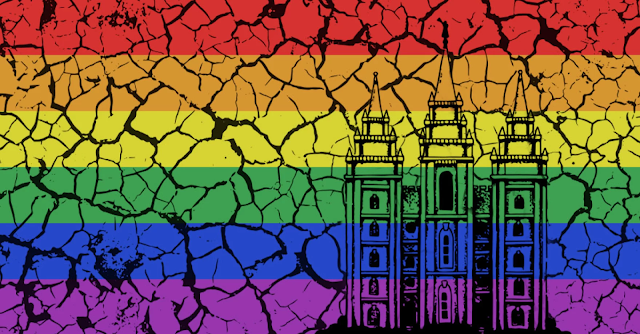Even if your family is no longer in the Church, do yourself a favor. Go say those exact words to the Mormon/Mormon-adjacent kids and teens in your life.
How did we get to the place where we have to say that? I have theories based on the youth I taught. The group who needed this the most were the teenage boys. Hands down. No question. And I think how we get here isn't necessarily through "mental health treatment doesn't work" messaging. The youth I had weren't sequestered from getting real professional help.
What I think goes wrong here is the idea that prayer helps in every situation.
People with mental illness have a very different relationship with prayer than those without it. Prayer does not cure, or even improve, mental illness. I will go so far as to say the best messaging is that prayer has no impact on mental illness.
Kids in religious households need to hear this very explicitly.
They need to hear it from the adults they love and trust.
The first person saying it to them should not be their Sunday School teacher when they're 14 and 15 years old. (Ask me how I know.)
What happens if they don't hear that? The following logical progression: I am depressed, anxious, struggling with an illness in my brain. I prayed for help. I can't "feel" the answer. I'm too broken for God. God doesn't love me anymore.
They will go to this place on their own, independent of the example you've set for them in pursuing mental health treatment in your own life. They need someone they know and trust to help them contextualize religious devotion through the lens of mental illness.
I would also add to this: There isn't anything wrong with teaching young children that they can feel answers to their prayers. There's a lot wrong with that messaging if it doesn't evolve with them as they grow up and mature into adulthood.
As a religious person with mental illness, God isn't someone I interact with through my feelings, especially when I'm in crisis. God is the one teaching me to reach out, ask for help, and to keep asking until I get the help I need. God is the one in that situation telling me not to give up on myself, and to take care of myself.
When I'm in crisis, there is very little else God is going to be saying to me. Why? Because God knows better than I do that Prozac is better than prayer for me in that moment. It can make religious people uncomfortable to say this because they feel like it's admitting failure in God.
To me, it's like purposefully having a conversation in a loud room and making the person I'm with scream at me, when I already know they don't like to yell.
I take my medicine because it quiets most of the noise from my mental illness most of the time. Then when I pray, it's less of a struggle to hear and interact with God. That's just the nature of being me. There's nothing wrong with that. And it doesn't mean God doesn't love me.
Our teens struggle more with their mental health than other teenagers because they're getting very different messaging about God's direct, granular involvement in their lives than most other teenagers, with no corollary for mental illness. So they go from "God is in every detail of my life" to "God is nowhere to be found."
That's not good! It's enough to make any mental illness worse because our youth feel like the most loving, most selfless part of their support system abandons them when they need it most.
If you're going to raise your children in a religious environment, there needs to be a healthy understanding that God isn't a magic gumball machine who takes away every problem just because they pray.
How we talk about mental illness needs to be a part of that.






